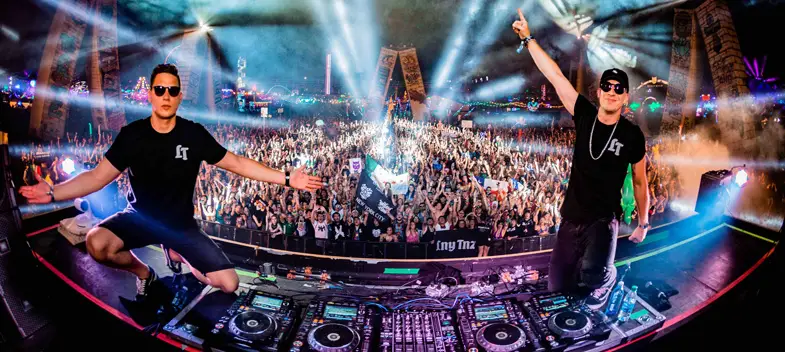
It looks easy, right. It looks like DJs push a couple of buttons and then just jump around & throw cake at their audience. Surely that can’t be all there is to it, can it?… And so… “What is a DJ doing when they’re on stage? What are DJs doing live?”
A common misconception, outside of the scene, is that DJing is easy. Some people think that DJs just press play on a pre-recorded track and then fake the rest. There is little doubt that this does happen sometimes. However, most DJs are actively monitoring the crowd and selecting tracks they think will be best received next. They then match the speed of the two tracks and, using EQs, will switch elements of the tracks to make a seamless blend.
Let’s dig a little deeper and find out what are DJs doing when they turn knobs? What are they doing when they slide faders? As well as covering some other things a DJ does on stage.
So What Do DJs Do?
Contents
The DJs main aim is to engage and entertain their audience. They do that by selecting tracks they think will fit the mood of the crowd. They also account for the situation (is it a festival, club or bar, are people dancing or sat down, etc).
The aim is to keep the music flow going and the crowd dancing for their entire set (usually 1-2 hours). They do this by mixing tracks together to create a seemingly endless blend.
Related: How to become a DJ – 50+ things to bear in mind
This Is Where You Get into the Question of “What Do DJs Really Do?”
Music tracks are very rarely the same speed (or tempo as it’s called in music). If they were it would be very easy to switch from one track to the other. You would be able to match the drumbeats and then turn one track’s volume down while turning the volume up on the next.
However, the tempo of the music is nearly always different, which makes this the DJ’s first job. They have to adjust the tempo, slowing it down or speeding it up, to match that of the currently playing track.
This process is called beat-matching.
As the name implies, beat-matching is to do with the number of beats per minute in a track (often shortened to BPM). If one track is 130BPM, and the next 133BPM, then you need to slow it down by 2.3% to also make it 130 BPM.

This is what DJs are doing when you see them listening in their headphones and nudging the platter. The platter is the circular disk in the center of the deck (head here to see our recommended decks).
However, matching the speed of songs to one another is only step one in answering what do DJs do.
Related: How long does it take to be good at DJing?
The Equipment Doesn’t Do The Job For Them…Mostly
As mentioned above, you can just turn the volume up and down on the tracks to switch them over. However, to make a mix as seamless as possible, a DJ has a lot of finer control over different elements of their music.
And this is why the mixers and the controllers i.e the equipment DJs have in front of them have so many buttons, knobs, and sliders on them.
(push here to see the decks, mixer and controller I recommend)
These control everything from effects, to being able to control the volume on certain parts of the track.
For example, the “Bass EQ” knob can be used to turn down the bass lines and bass drums of a song while the “Treble EQ” knob can be used to adjust the volume of things like melody lines, guitars or vocals.
It is being able to manipulate parts of the track like this, that allows DJs to seamlessly mix from one track to the other so that, to the crowd, it sounds like a never-ending stream of music.
(skip to 1m 30s for the money shot)
Using FX
Often the buttons on the equipment control FX. This allows a DJ to add extra elements and layers to their mixing and their sets. They can apply things such as echo, which will repeat a certain sound, or in some cases, they will play sound samples.
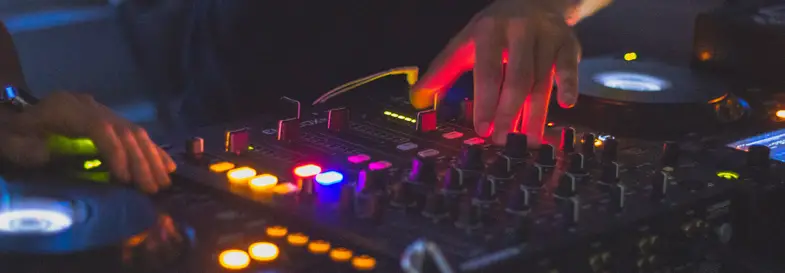
For example, one DJ, Tim Westwood, used to have sound effects of gunshots or glass breaking cued up on his mixer. He would then play them repeatedly in order to cover up the switch from one track to the other.
The best DJs use FX sparingly to enhance their sets, as opposed to using them to cover up for a lack of skills.
The amount of techniques and methods a DJ can use when mixing their tracks together is almost endless.
Some will work non-stop to loop sections or mix three or four tracks together to create entirely new tunes.
While other DJs will do fairly simple mixing techniques and rely on playing exceptional music that their audience just loves.
Love DJ gear?
So do we, check out our favorites…
Reading the Crowd
There is another skill that people often don’t realize when they ask what do DJs do.
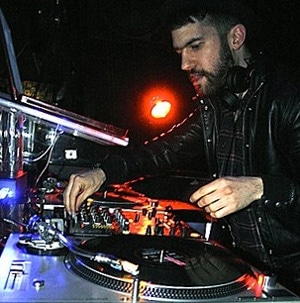
Of course, knowing how to use their equipment is very important for DJs, but it doesn’t end there. They have to know how to read a crowd, understand what they’re enjoying and what they are not.
Basically they need to be able to understand the mood of their audience the whole time.
The best DJs are able to do this and adjust the direction and flow of their sets to make sure the crowd has the best possible time.
Related: Reading a crowd is covered more in depth in the “how to become a DJ” article
Renowned DJ A-Trak (who won the DJ world championships when he was only 15 years old) describes what a DJ actually does as:
“DJs keep people dancing. You’re able to keep the tempo steady as you go from song to song.
It’s actually a pretty easy technique, but DJing itself is not that easy and I think the real role of the DJ is selection, it’s picking songs and having a sense of what to play and when.”
DJing has evolved a lot over the years which means so has the question of “what do DJs do?” This is probably why there is some confusion over what’s actually happening on stage.
DJs Are (Often) Musicians To
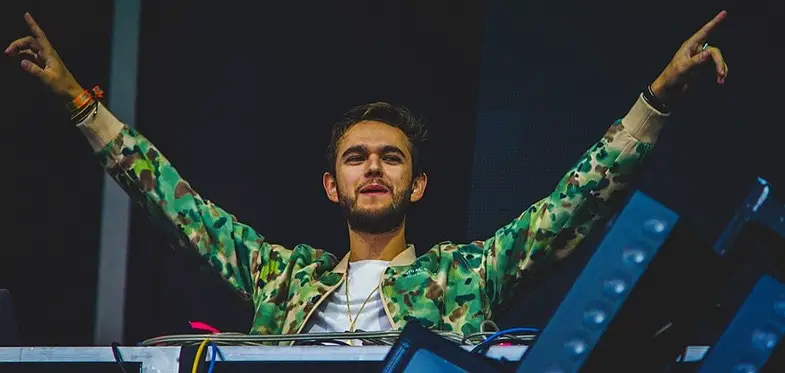
Often musicians (i.e people that play piano, guitar or drums) tend to think that DJing is easy and they don’t really do much while on stage.
However, all the same musical rules apply so, the better a DJ knows music and understands its theory then the better overall DJ they will be.
In fact, many DJs are accomplished musicians in their own right.
Zedd, for example, is a classically trained musician who started learning his first instrument at the age of four.
Related: Are DJs musicians? The arguments & answers
How Do DJs Put on a Show?
People enjoy seeing music performed live because it’s slightly different to the recorded material, and is a moment that will never happen again.
The same applies to DJ sets.
The way a DJ puts a mix together, the tunes they select and even some of the tiny errors they make, all help to create unique moments in time. These unique moments create an added dimension to seeing a DJ in a club and dancing with others, a dimension beyond simply putting on a CD and everyone having a dance.
Also, depending on the type of DJ, they will have to directly interact with the crowd.
Special event or wedding DJs, for example, will take requests or maybe even have to MC an event i.e actually get on the microphone and make announcements or shoutouts.
Related: How to make a DJ mix – 20 points to help you smash it
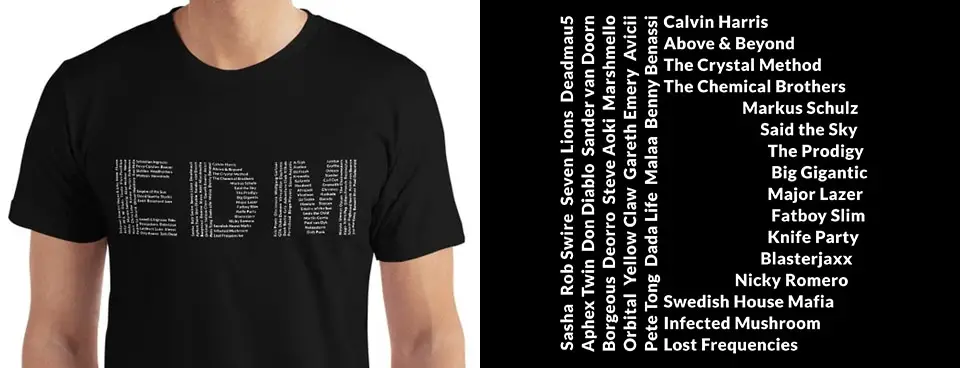
Get it from our store.
What Do DJs Do Offstage?
Those dedicated to their craft will spend endless hours both practicing their technique and learning which tracks and types of tracks work well together.
On top of that, they will spend hours and hours searching for, listening to and purchasing new music.
The more they do this then the bigger their music library and the better their musical knowledge. They can then draw on these to make sure they always have that perfect track depending on the situation and mood of the crowd.
Related: How do DJs know what song to play next?
After all, their ultimate aim is to be able to look out from that stage and see a sea of dancing people with smiling faces.
Some DJs, particularly those early on in their career, might actually have pre-selected or pre-planned the songs they were going to play. However, most will freestyle their shows i.e they have their entire music library with them and be able to choose music on the fly.

So Then, What Do DJs Actually Do?
They spend their time researching music to give them a broad knowledge and a vast music collection.
A good DJ then gauges the mood of the crowd to select the music to play at that exact moment. They then make sure that the tempo of the next track matches the tempo of the track already playing.
They have to make sure that the volume matches each other and then they will blend between the two tracks as seamlessly as possible. This prevents there being horrible beat clashes that will stop people from dancing.
When it is completely obvious that two tracks are playing then suddenly people find it difficult to dance. Like when two vocal lines are running over the top of each other, this would be a DJ fail for sure.
If a DJ is also a producer, and they are well known for making their own music, then chances are they will play almost entirely their own music throughout their performance.
And, because they created the music, they are able to break it down even further.
They may take out just the bass line or the drums from one track to with parts of another track. This allows them to essentially create remixes on the fly, never before heard or released.
Related: Do you need permission to remix a song? The ins & outs
Live Music While DJing…
This gets into more of the live performance side of things, and many DJs actually do a bit of both.
You will often see a DJ that may have a keyboard next to the decks for example. This lets them play some of the bass lines or melodies live, as well as mixing in and out of songs on the decks (see our recommended decks here).
This gives a DJ total flexibility to perform as the mood takes them.
Back when technology was more basic, i.e just two vinyl decks (see our recommended vinyl decks) with a simple mixer, then it really was just about selecting two tracks that worked well together. Then you became able to match the speed and start to blend seamlessly between the two.
As technology has advanced, DJs and their sets have become a lot more intricate. Using effects, looping sections, beat juggling or adding scratching they often now do fully live remixes.
Although both ends of the spectrum described definitely still count as “DJing”.
Related: Are DJs musicians?
Live Dance Music WITHOUT DJing…
It is worth noting that people also often confuse fully live electronic performances with DJing.
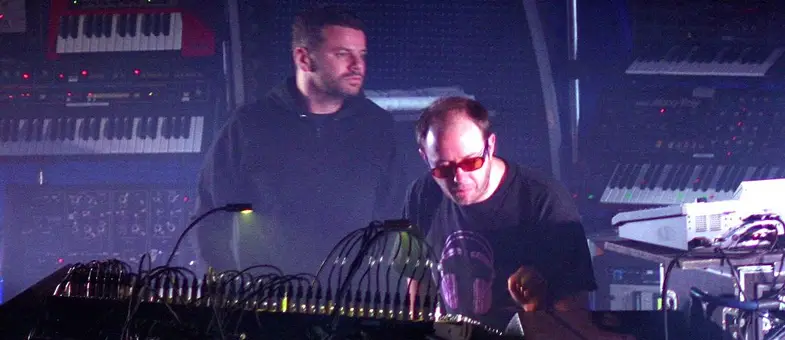
The Chemical Brothers, for example, often perform with many pieces of equipment on stage. These range from drum machines to synthesizers and keyboards. So when you see them turning knobs, pushing faders and manipulating machines they really are creating music on the spot. Literally building songs from scratch in front of you.
DJs however, will be taking already complete tracks and mix them together to create a seamless flow.
Faking it…after making it
As mentioned at the beginning, there are some DJs that definitely do just press play. But what do DJs do when they’re faking it? It’s sad to say they basically just mime and dance around for their entire set.
Usually, this happens when a DJ has intricate visuals that are timed very specifically to the music. So some DJs will essentially just pressing play on a movie, that has their music as the backing.
We are getting to the point where visuals can be triggered live, so hopefully, this practice will end.
There are definitely some times you will see DJs just trying to look busy and look like they are doing more than they are, however, for the most part, the skilled DJs will have really honed their craft.
Anything not covered, or still got questions? Please drop questions in the comments and I’ll be happy to give you specific answers.
What next?
- Want to become a DJ, check out our full guide here. In it you will learn everything from how to learn to DJ, to what equipment you need to get going.
- If you are interested in EDM DJing specifically then check out this guide. It will stick a rocket up your career!
Sources
- Zedd image by Charito Yap, licensed under CC 2.0
- Chemical Brothers image by Alterna2, licensed under CC 2.0
- A-Trak quote is taken from an interview with Business Insider

GET IT IN OUR STORE

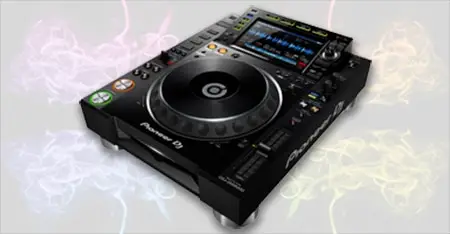
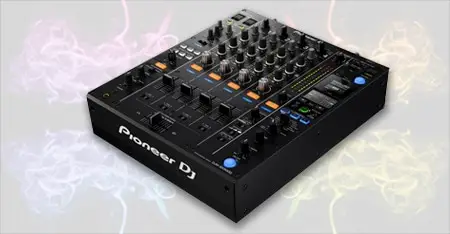
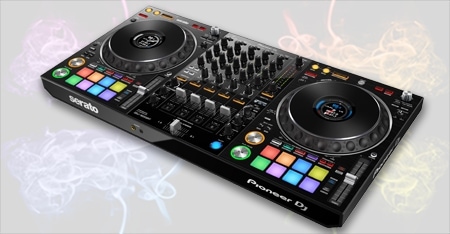

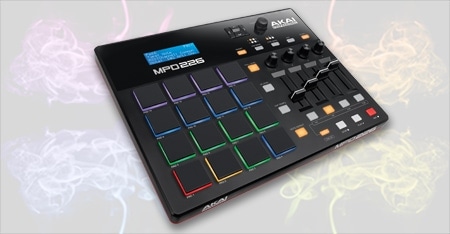
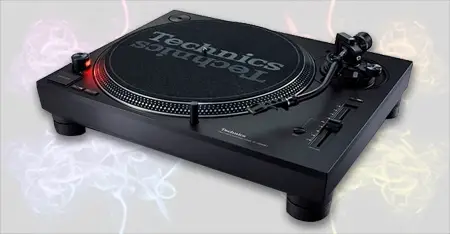
Thanks so much… that was very informative. I’ve never been into the scene, but have always wondered how exactly it works.
Yep there’s a lot more to it than I think a lot of people realize… although don’t get me wrong there are definitely big-name DJs out there that will take any shortcut they can :/
while quarantined, i feel like learning to dj lol thank you for all these articles
My pleasure Klara, if you have any specific questions I am always happy to help 🙂
this is interesting, but I’m wondering what “visuals are going to be triggered live” means in the last paragraph.
Often you have to use 3rd party software to show the visuals, particularly for large-scale shows like Deadmau5 or Fatboy Slim, which adds an extra layer of complexity and often means you have an offstage VJ that is essentially making sure the visuals match. However, as computers get faster and software improves (like Serato’s video integration for example) it will become easier for DJs themselves to have full control over both the music and visuals.
Thanks for the insightful article, it has got just the answers I was after and now I know better what to respect in a good DJ.
Glad you found it helpful, thanks for your comment Gabor
Fantastic article, Chris. My husband is a DJ who is absolutely fanatical about his craft and I found the information you provided fascinating. I’m a real music buff too, but I had no idea of the skills a good DJ needs to have. I now have a much higher respect for what my husband loves so much. So thank you!
Thanks for your kind words Beth, yes there is a lot to it, which is the exact reason why people can develop such a deep passion for it 🙂